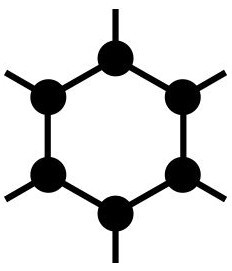I want to understand it but everything I read about it oscillates impossibly between vulgar metals -> gold and some kind of spiritual transformation metaphysical stuff
What is it and what can be legit gleaned from it in an empirical or useful sense?
Does it have utility outside of use as a metaphor or allegory or whatever?
Alchemy is basically just the alpha version of chemistry. It wasn’t feature complete and still had a lot of bugs, but there was some good mechanical ideas that have persisted throughout development. Such as mixing two or more things together to make something new.
What is complicated about alchemy is that it’s a tradition that is thousands of years old and it has so many layers it’s hard to make sense of.
Originally you have metallic alchemy, a precursor to chemistry and metallurgy. An insanely valuable corpus of knowledge if you think about ancient times - good metallurgy made good armies which made empires. It was technology so advanced it might as well have been magic. The literature that has survived is very opaque by design, and hard to read because of cultural jetlag, but they are technical texts - tutorials and explainers for the various chemical and alloying operations that were known at the time.
utility outside of use as a metaphor : 10/10 if you’re kind of done with Bronze and want to boost your kingdom into the Iron Age
Then around the Renaissance, when antique stuff started becoming hot again, those texts started buzzing and they were re-interpreted with a generous flavouring of Renaissance spirituality. That’s pretty easy with antique technical texts because they are always written with a lot of religious and astrological terminology. It could be about plumbing and you’d still have Apollo fighting Hades as an allegory of you unclogging a pipe or whatever. So, to a modern mind it made sense to see them as spiritual guidebooks through the transformation and purification of the self. That’s also when they started pumping the gas on the “philosophical stone” ideas of turning mercury into gold, becoming immortal etc… The technical aspects of the texts started fading in the background.
utility outside of use as a metaphor : 0/10 although you’ll get some beautiful, evocative literature out of it. Some seriously trippy stuff if you’re into that sort of things.
Then you have the 19th century onwards where it’s a literal explosion of books and treatises and translations, and it gets even more divorced from the source material, as the academic work gets shoddier and shoddier. At this point the technical aspects are mostly lost on the readers because they make no sense in the context of early-industrial metallurgy and chemistry.
utility outside of use as a metaphor : 0/10, kind of new-agey to my taste. It has a lot of cultural relevance, though. Being well-read in early modern hermeticism is kind of the Rosetta stone of popular culture lol.
I breathe in oxygen and exhale carbon dioxide. So no, alchemy is real. Just not with metals, unless you’re talking about eating a bar of gold and having it turn into a substance called shit, though you’ll be in the bathroom for a long, long time.
If it could be done with metals, we would’ve seen a lot more hyperinflation in history, and alchemists were typically people appointed by monarchs who planned to farm that wealth for themselves, which reflects their thirst for pizzazz more than anything actually fascinating.
We breath in air not oxygen. We do remove the some of the oxygen and exhale what’s leftover. This is biology, not alchemy.
How would you define alchemy?
I define alchemy as pseudoscience, woo, or bullshit.
This is how I define anything that doesn’t have evidence of it’s existence.
How is literally inhaling one element and exhaling another not evidence?
We inhale air, which is composed of nitrogen, oxygen, and small amounts of other gasses such as carbon dioxide, hydrogen and neon. Carbon dioxide is not an element, but a compound. Elements are things composed of only one type of atom, wheras compounds, such as carbon dioxide, are composed of more than one type of atom, specifically two oxygen atoms and one carbon atom.
We inhale oxygen and carbon dioxide from the air, it’s just that when we exhale the ratios are different. When we exhale we also breathe out oxygen as well since not all of it gets absorbed. In order to change an element from one to another, you need to do nuclear reactions. Our bodies can change one compound to another but that’s a whole different story (and much less fun than nuclear reactions). I hope this helped! 😃
Kind of. What makes us say it’s any less conversion/alchemy?
The elements aren’t being converted into other elements (for example, converting lead atoms into gold atoms). The only conversions taking place are chemical reactions, where compounds are either forming or being broken down.





